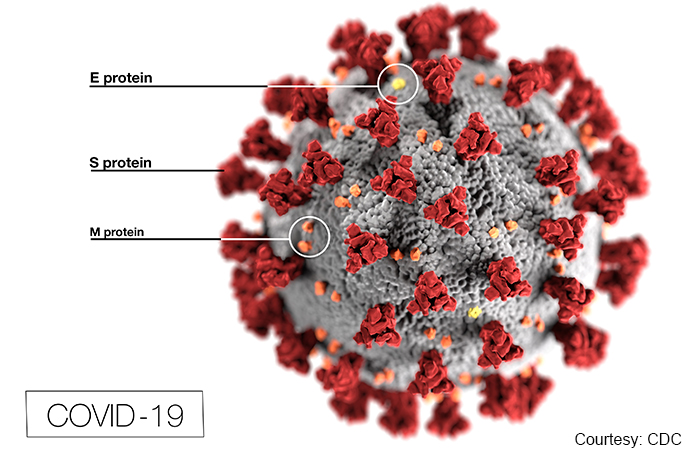ACE Inhibitors and Angiotensin Receptor Blockers May Increase the Risk of Severe COVID-19

The SARS beta coronaviruses, SARS-CoV, which caused the SARS (Severe Acute Respiratory Syndrome) outbreak in 2003 and the new SARS-CoV-2, which causes COVID-19, bind to angiotensin converting enzyme 2 (ACE2) receptors in the lower respiratory tracts of infected patients to gain entry into the lungs. Viral pneumonia and potentially fatal respiratory failure may result in susceptible persons after 10-14 days.
“Angiotensin-converting enzyme inhibitors (ACEIs) and angiotensin receptor blockers (ARBs) are highly recommended medications for patients with cardiovascular diseases including heart attacks, high blood pressure, diabetes and chronic kidney disease to name a few,” notes Dr. Diaz. “Many of those who develop these diseases are older adults. They are prescribed these medications and take them every day.”Research in experimental models has shown an increase in the number of ACE2 receptors in the cardiopulmonary circulation after intravenous infusions of ACE inhibitors.
“Since patients treated with ACEIs and ARBS will have increased numbers of ACE2 receptors in their lungs for coronavirus S proteins to bind to, they may be at increased risk of severe disease outcomes due to SARS-CoV-2infections,” explains Diaz.Diaz writes, this hypothesis is supported by a recent descriptive analysis of 1,099 patients with laboratory-confirmed COVID-19 infections treated in China during the reporting period, December 11, 2019, to January 29, 2020. This study reported more severe disease outcomes in patients with hypertension, coronary artery disease, diabetes and chronic renal disease. All patients with the diagnoses noted met the recommended indications for treatment with ACEIs or ARBs.
Diaz says that two mechanisms may protect children from COVID-19 infections -- cross-protective antibodies from multiple upper respiratory tract infections caused by the common cold-causing alpha coronaviruses, and fewer ACE2 receptors in their lower respiratory tracts to attract the binding S proteins of the beta coronaviruses.He recommends future case-control studies in patients with COVID-19 infections to further confirm chronic therapy with ACEIs or ARBs may raise the risk for severe outcomes.
In the meantime he cautions, “Patients treated with ACEIs and ARBs for cardiovascular diseases should not stop taking their medicine, but should avoid crowds, mass events, ocean cruises, prolonged air travel, and all persons with respiratory illnesses during the current COVID-19 outbreak in order to reduce their risks of infection.”______________________________________________________________________________________________________________ LSU Health Sciences Center New Orleans (LSU Health New Orleans) educates Louisiana's health care professionals. The state's health sciences university leader, LSU Health New Orleans includes a School of Medicine, the state's only School of Dentistry, Louisiana's only public School of Public Health, and Schools of Allied Health Professions, Nursing, and Graduate Studies. LSU Health New Orleans faculty take care of patients in public and private hospitals and clinics throughout the region. In the vanguard of biosciences research, the LSU Health New Orleans research enterprise generates jobs and enormous annual economic impact. LSU Health New Orleans faculty have made lifesaving discoveries and continue to work to prevent, advance treatment, or cure disease. To learn more, visit http://www.lsuhsc.edu, http://www.twitter.com/LSUHealthNO, or http://www.facebook.com/LSUHSC.
